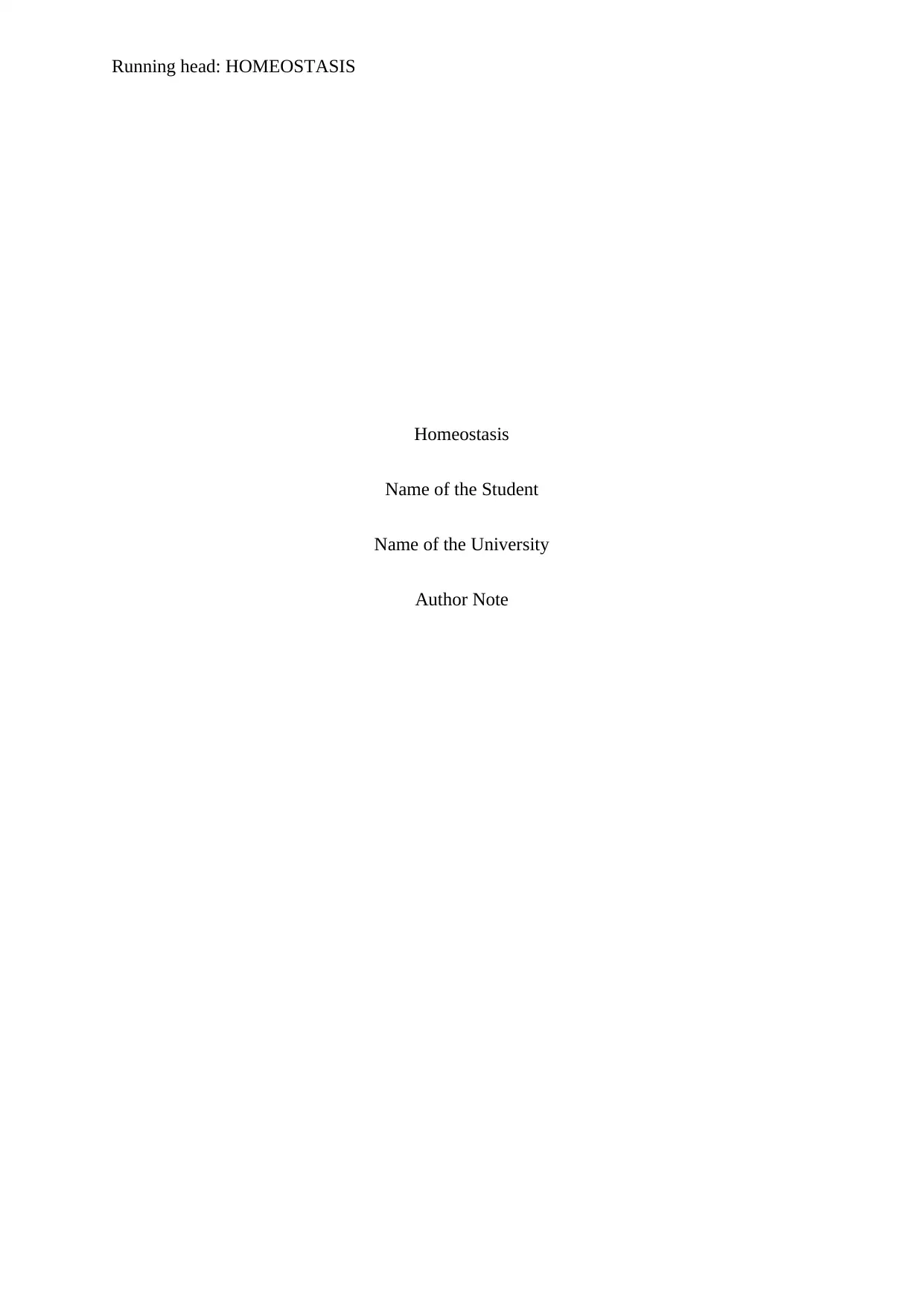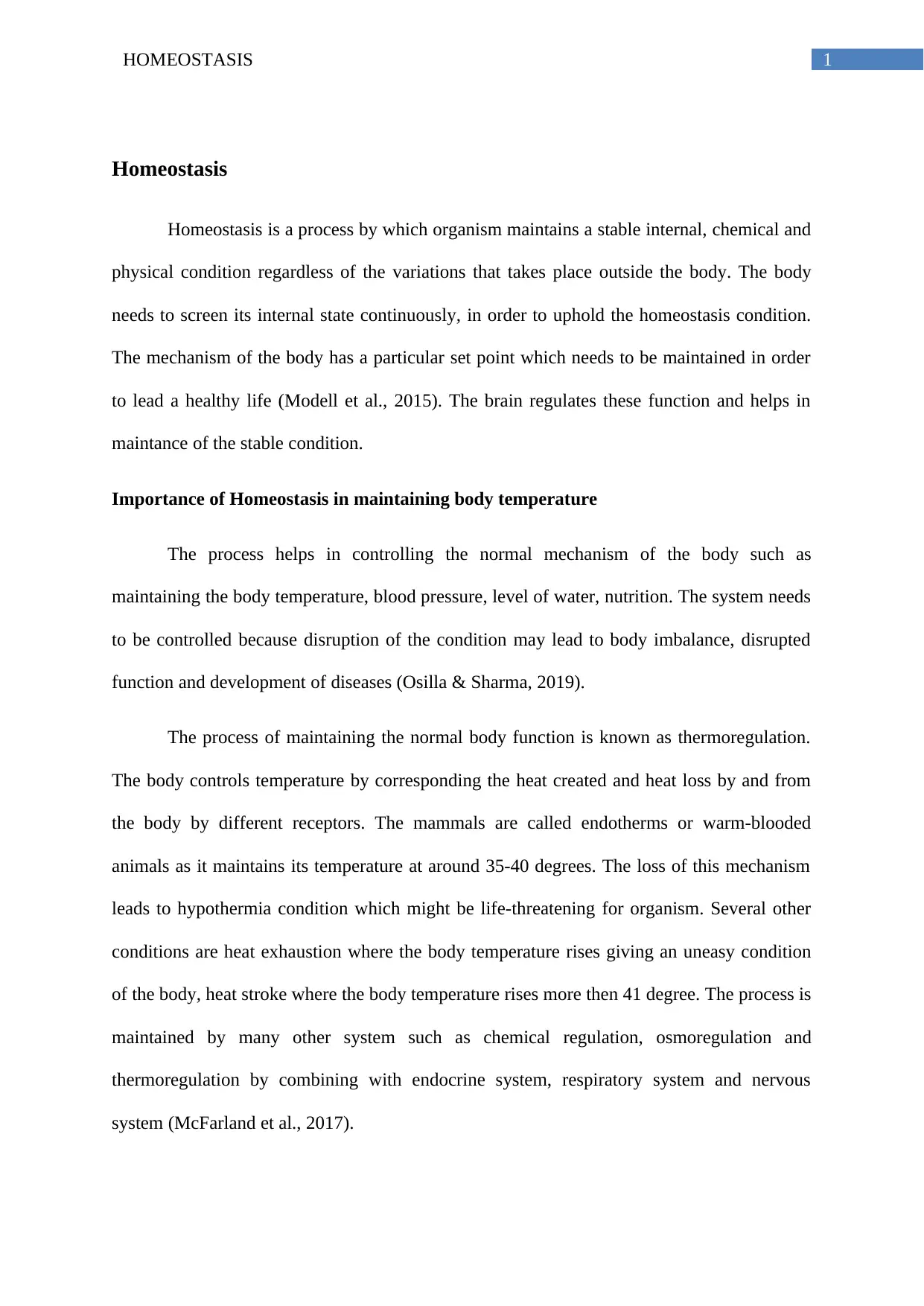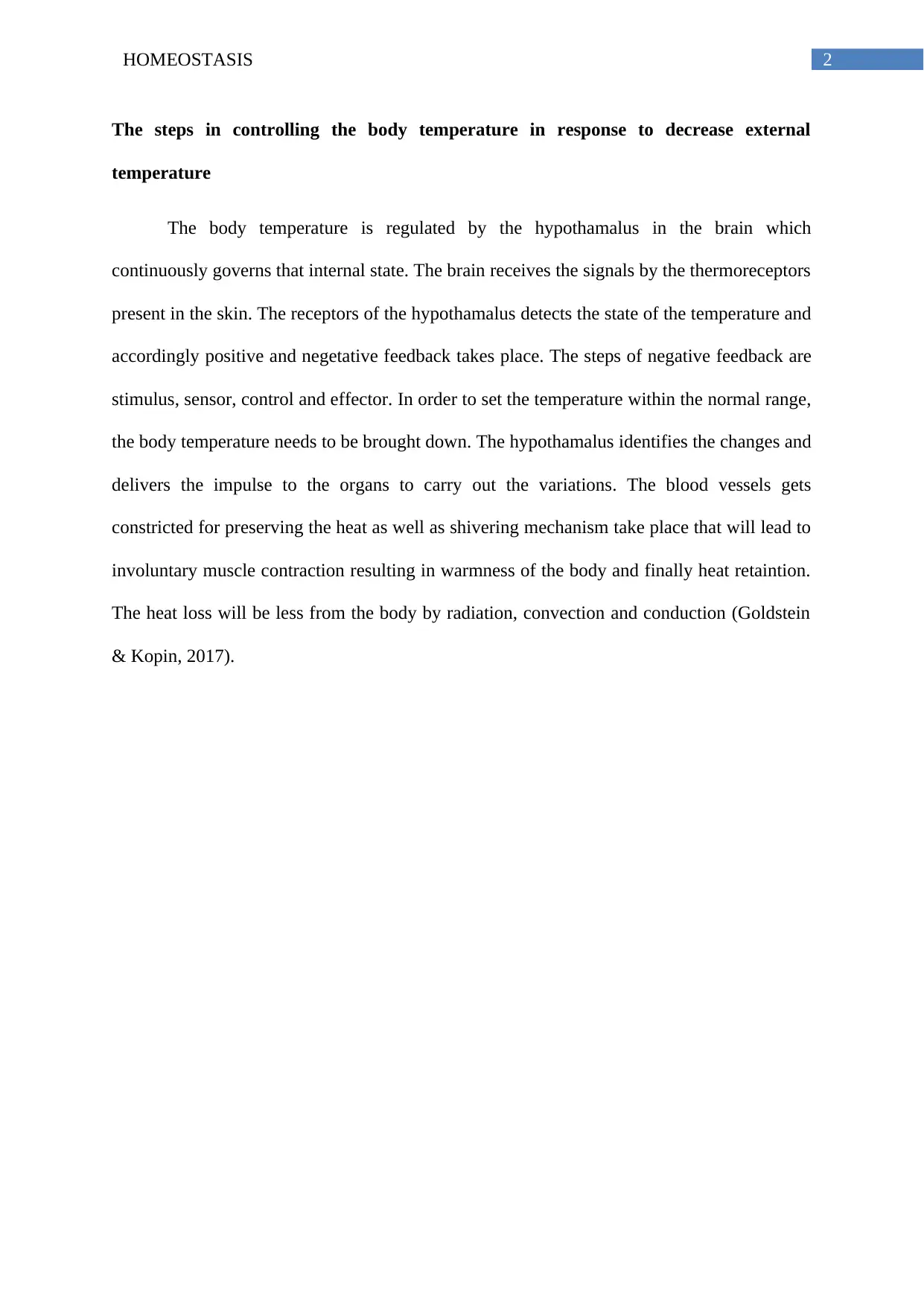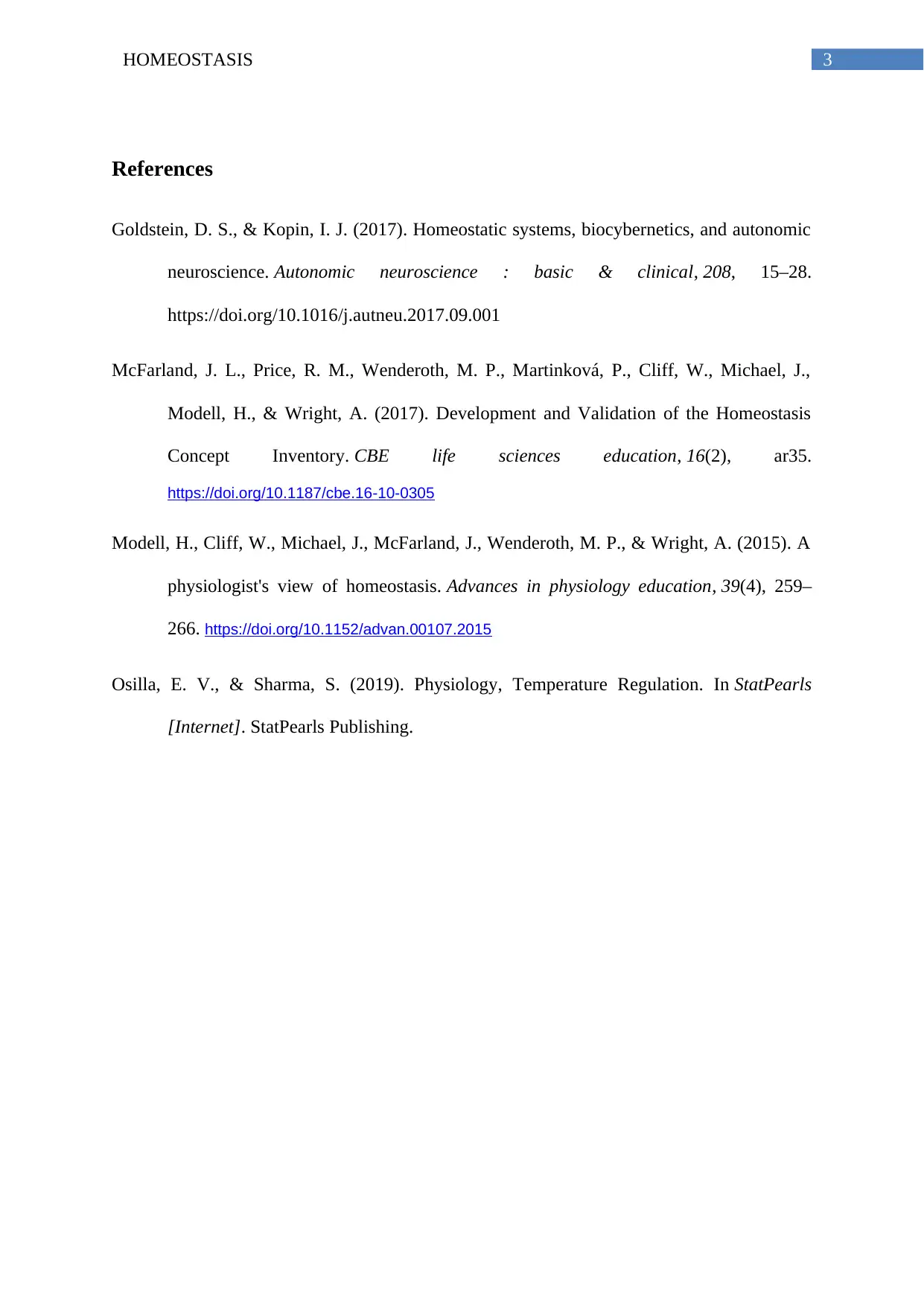A Biology Report on Homeostasis and Its Role in Thermoregulation
VerifiedAdded on 2022/08/26
|4
|663
|27
Report
AI Summary
This report provides an overview of homeostasis, the process by which organisms maintain a stable internal environment. It emphasizes the importance of homeostasis in regulating body temperature, also known as thermoregulation. The report explains how the hypothalamus in the brain controls body temperature through negative feedback mechanisms, including the constriction of blood vessels and shivering. It also discusses conditions like hypothermia, heat exhaustion, and heat stroke, which arise from disruptions in thermoregulation. The report highlights the role of various systems such as the endocrine, respiratory, and nervous systems, in maintaining homeostasis. Furthermore, the report includes references to relevant scientific literature that supports the concepts presented.
1 out of 4











![[object Object]](/_next/static/media/star-bottom.7253800d.svg)